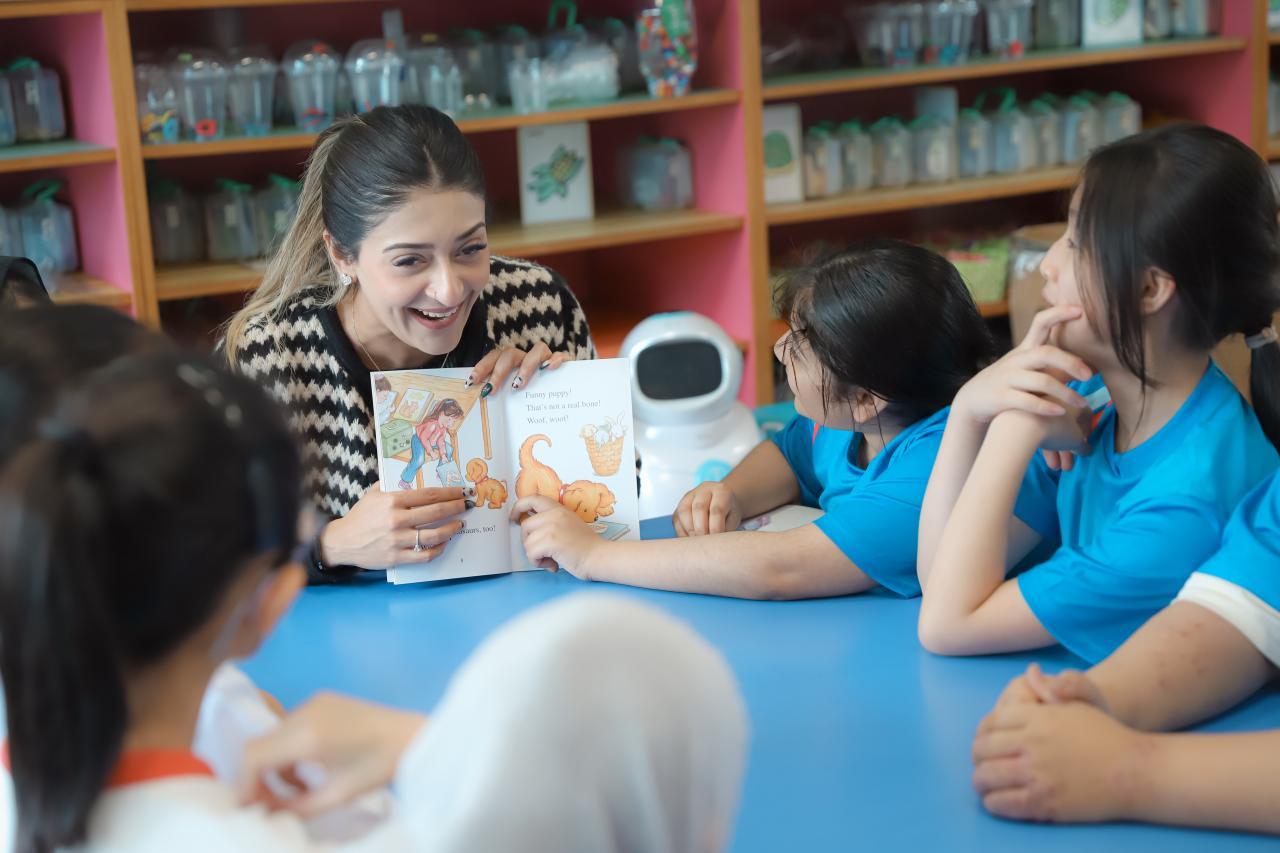1 Curriculum Framework
1.1 Aims
1.1.1 To develop pupils’ ability to communicate in English effectively.
1.1.2 To equip pupils with four key generic skills and enable them to become life-long learners.
1.1.3 To promote the development of positive attitudes and values so as to nurture pupils to become responsible citizens.
1.2 Objectives
1.2.1 To enhance teaching and learning effectiveness by reinforcing teachers’ professional training.
1.2.2 To promote child participation in all aspects of school life as an environmentally-friendly school.
1.2.3 To develop students’ reading, listening, speaking and writing skills through effective teaching and meaningful activities.
1.2.4 To improve pupils’ reading and writing skills.
1.2.5 To deepen the culture of self-learning among students in order to prepare every student to be a life-long learner.
1.2.6 To cater for learner diversity in order to strengthen the learning outcomes of an individual child.
1.2.7 To further develop the 4C skills in conjunction with collaborative activities leading pupils towards developing positive values and attitudes.
1. P.1-2 School-based Phonics and Reading Programme校本英語拼音及閱讀課程
Our school-based Phonics Programme is a 2-year programme mainly for P.1-2. We use Synthetic Phonics Approach. Pupils will read decodable books which help them to practice and transfer the skills from reading words in the worksheets to reading books.
All phonics lessons are co-taught by Native English teachers and local English teachers.
2. P.1-6 School-based Writing Programme 校本寫作課程
By constructing mind maps and looking at pictures for writing, students can conceive and organize the main points of writing, enhance their confidence in writing, and build a sense of accomplishment. Together with activities that are diverse and relevant to life experiences, students' internal motivation and ability to learn English are further enhanced.
Learning
The seven primary schools under the Hong Kong Buddhist Association have collaborated with Dr. Yeung Siu-sze, Associate Vice-President (Academic Quality Assurance) and Associate Professor of the Department of Psychology at the Education University of Hong Kong, to develop a brand-new "Primary One English Assessment" mobile application for new Primary One students, with the aim of comprehensively enhancing students' English proficiency.
This assessment will be conducted using tablet devices, covering eight areas: letter recognition, vocabulary, sentence comprehension, phonological awareness, daily communication (simple instructions), daily communication (question-and-answer), single word reading, and an overall score.
Based on the student reports, Primary One teachers will design suitable teaching materials to improve students' English abilities. It is expected that after completing six years of primary education, all students will be able to master daily English communication skills and meet the English language requirements for entering an English-medium secondary school.
English Drama
Students' dramatic potential and communication skills will be developed through participating in English drama performances. This year, the English Drama Team won the Outstanding Script Award, Outstanding Director Award, Outstanding Performer Award, Outstanding Stage Effect Award, and the Adjudicator's Award at the Hong Kong School Drama Festival. They have also been invited by the Hong Kong Academy for Performing Arts to perform at the Tsuen Wan Town Hall on May 25th.
Happy Reading Scheme
Students will cultivate their English reading abilities and interests by reading online English audiobooks at home. Additionally, in the sixth lesson every Wednesday, senior English reading ambassadors and native English teachers will visit Primary One and Two classrooms to share English stories in an engaging and interactive way.
Diverse English Activities
A variety of English activities, such as English Fridays, bookmark design competitions, news reading quizzes, lunchtime English story sharing, and English-themed events, are organized annually. Furthermore, cross-curricular outdoor learning days are held each year, with English as the leading subject, allowing students to apply their English knowledge and skills in real-life situations.
Phonics and Cambridge Young Learners English Courses to build a solid English foundation
The school has two native English teachers responsible for teaching and strengthen students' English "listening, speaking, reading, and writing" abilities.
Speaking Skills Training
To ensure that senior primary students are well-prepared for secondary school, the native English teachers also provide speaking skills training for Primary five to Primary Six students, which is closely aligned with their English curriculum. Through engaging learning activities, the program aims to boost students' confidence in using English and help them seamlessly transition to the secondary school challenges.

Hello! I’m Miss Mariam, and I’m excited to join the team at BLBYMS. With over nine years of teaching experience, I believe learning should be as fun as a treasure hunt minus the pirates!
I love diving into the learning process with my students, fostering an environment where we can explore, discover, and enjoy the journey of learning together.
When I’m not sparking curiosity in the classroom, you can find me enjoying arts and crafts, hiking, working out, or planning my next scuba diving adventure.
I look forward to an amazing school year ahead!


Thinking Skills 思考技能 | |
Understand Analyze | A Detective Game |
Evaluate Create | Design a poster to tell others to save the energy |
Tiered Questions 分層提問 | |
Evaluation | Do you think the brain is important? Why do you think so? |
Synthesis | Do you think you would have enjoyed living around 100–150 years ago? Why? |
Analysis | Compare and/or contrast two of the main characters. |
Application | Give examples of people the student knows who have the same problems as the characters in the story. |
Comprehension | What does the writer suggest if we want our brain to work properly? |
Knowledge | What is the weather like in winter? |


